Your Guide to Home Care: Skilled Services vs. Private Duty Support
When it comes to home care, understanding the types of services available can make a world of a difference in ensuring your loved one receives the best care tailored to their needs. Two primary categories often come up in discussions when talking about home health care: skilled services and non-skilled/private duty services. Let’s delve into what each entails, the range of services offered, and the criteria for insurance coverage, including Medicare.
Skilled Services: Bringing Expertise Home
Skilled services are those provided by licensed medical professionals who offer specialized care tailored to the individual’s medical needs and work with the patient’s provider, via our medical affiliate Health Care Connectors. Here’s a breakdown of some key skilled services commonly offered in home care:
1. Nursing Care: Registered Nurses (RNs) or Licensed Practical Nurses (LPNs) administer medical treatments, manage medications, monitor vital signs, provide wound care, and offer education on managing health conditions.
2. Therapies:
- Physical Therapy (PT): PT focuses on improving mobility, strength, and balance through exercises and modalities.
- Occupational Therapy (OT): OT assists with activities of daily living (ADLs), such as dressing, cooking, and bathing, to promote independence.
- Speech Therapy (ST): ST addresses communication disorders, swallowing difficulties, and cognitive impairments through exercises and techniques.
3. Social Work: Social workers provide emotional support, connect patients with community resources, assist with advance directives and end-of-life planning, and address any social or environmental factors affecting health.
Personalized Care and Assistance
Non-skilled or private duty services focus on assisting with activities of daily living (ADLs) and instrumental activities of daily living (IADLs). While not medically oriented, these services are crucial for maintaining independence and enhancing quality of life. Here’s what they encompass:
1. Personal Care: Assistance with bathing, grooming, toileting, dressing, and other personal hygiene tasks.
2. Companionship: Providing companionship, conversation, and emotional support to alleviate loneliness and improve mental well-being.
3. Light Housekeeping: Help with light housekeeping tasks such as laundry, meal preparation, grocery shopping, and tidying up the living space.
4. Safety Supervision: Assisting clients with safety supervision and mobility care.
5. Medication Reminders: Reminders to clients to take their medication as prescribed.
6. Transportation: Assistance with transportation to and from doctor appointments and more if needed.
Insurance Coverage: Understanding Your Options
We understand how overwhelming it can be while navigating insurance coverage, particularly Medicare. Here’s a brief overview of what you need to know:
Medicare Coverage for Skilled Services
Medicare typically covers skilled home health services if:
- The patient is homebound, meaning leaving home is a considerable effort by themselves
- The care is ordered by a doctor and provided by a Medicare-certified home health agency.
- The services, such as skilled nursing care, physical therapy, occupational therapy, and speech therapy, are intermittent and medically necessary.
Private Insurance and Medicaid
- Private insurance plans offer coverage for skilled home health services, though coverage varies. Medicaid programs also provide coverage for eligible individuals, often covering a broader range of services beyond what Medicare includes.
Private Duty Services
- Private duty services are usually not covered by Medicare. However, some long-term care insurance policies or Medicaid waivers may cover these services, depending on eligibility criteria.
Conclusion
Whether your loved one requires skilled medical care or private duty assistance with daily tasks, Health Care Connectors can offer personalized support tailored to their needs. Understanding the differences between skilled and non-skilled services and knowing your insurance options can empower you to make informed decisions about your loved one’s care.
If you have any questions about home care services or insurance coverage, don’t hesitate to reach out to us at Health Care Connectors for a free consultation. Your loved one’s well-being is our top priority, and we’re here to help every step of the way.



